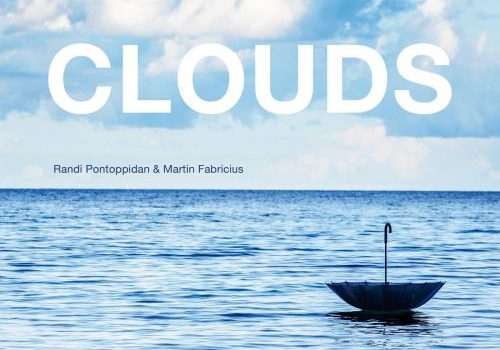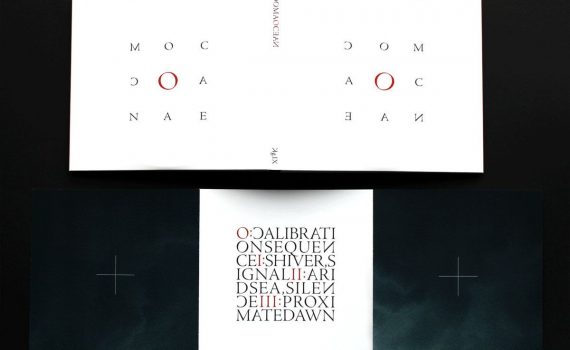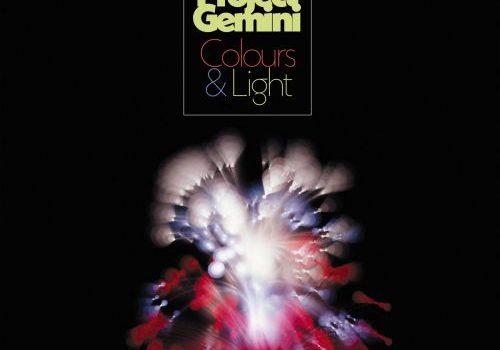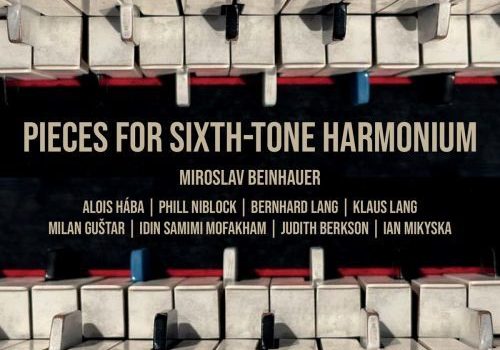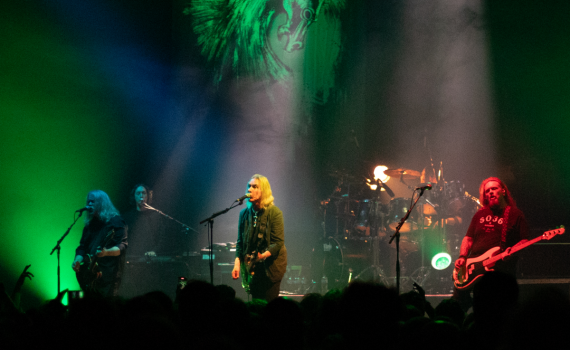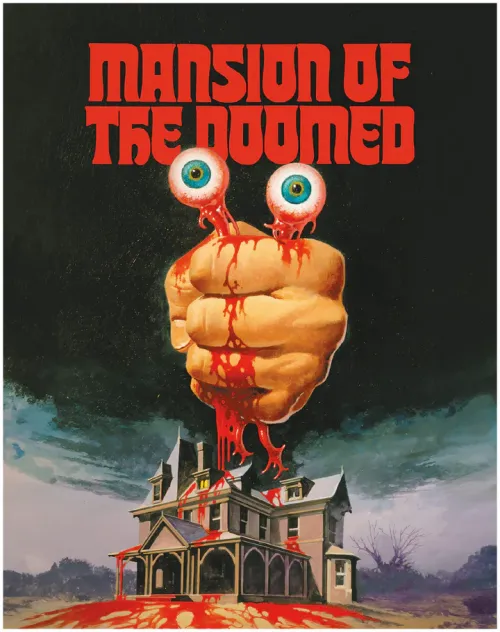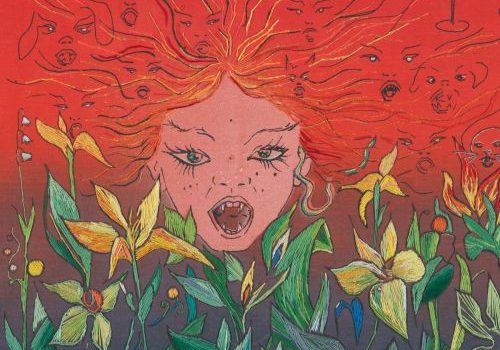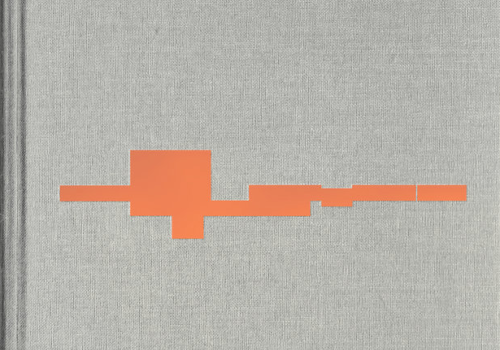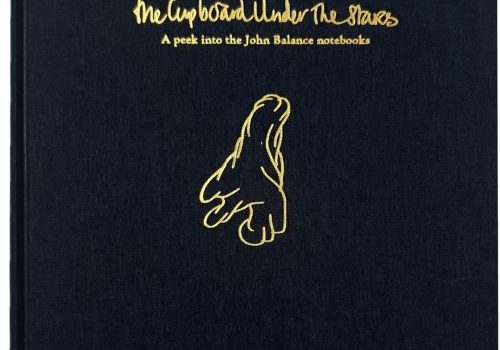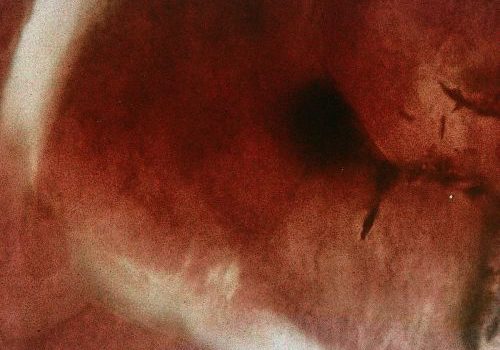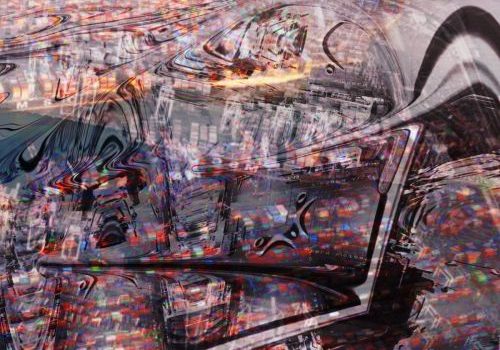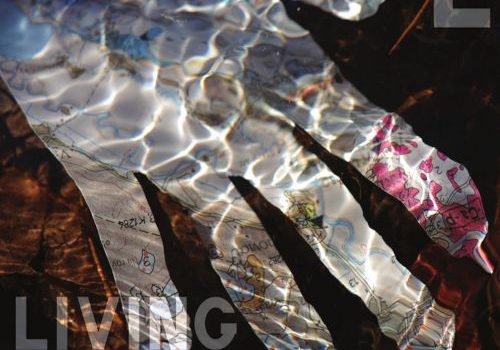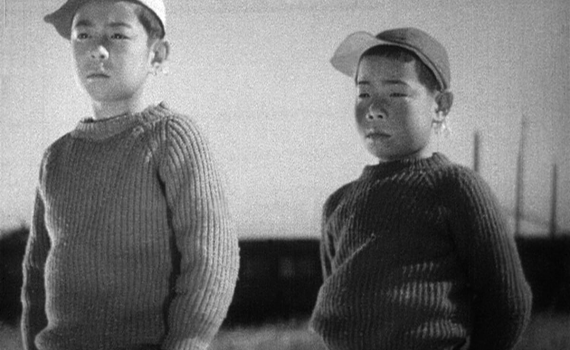Vocalist Randi Pontoppidan and vibraphonist Martin Fabricius met while studying under Jamaladeen Tacuma at a jazz workshop in 2016. Jamaladeen insisted on recording an off the cuff session with the two and after that release, the pair continued working together, collating the pieces to be recorded for this album whilst working on other projects. Clouds' long gestation introduces a sense of comfort between the two players and an otherworldly ethereality that places the eleven compositions collected here well outside any prevailing styles.
...the artwork's text resembles (at a squint) something like a boustrophedon, but there's a strong sense that the label Keraunograph have spent a lot of time thinking about font-weights, spacing and those typographical niceties. What I'm saying is that where the sleeve actively resists identification by typical modes, there's emphasis placed elsewhere that makes it identifiable, if not 'legible'.
This is the second outing for Paul Osborne's Project Gemini and for the opening snippet I wrote "woodland samba Dr Who theme with flute". This gives you some indication of the number of touchstones that are present on Colours & Light and it is a good title as well, because the album is all about the vibrancy of the outdoor world in all its glories, taking in funk elements, baggy twists and soundtrack drama in its inimitable stride.
...the sixth tone harmonium is a harmonium with three registers that's tuned very differently to your average twelve-tone equal temperament piano. The sound here is "very microtoney". The daddy of this is Alois Hába (1893-1973), a Czech composer who saw greater harmonic possibilities from expanding the reach of Western tonality, rather than the increased compositional complexity of twelve tone (as created by Arnold Schönberg).
After what seems like an interminable winter, summer finally seems to have arrived in glorious sunshine, heralded somewhat weirdly by the Northern Lights appearing across London the previous night. If that isn’t a sign of the north marching south, I don’t know what is, so what could be better than New Model Army live at the Roundhouse?
...a selection of songs that give an indication to the flavour of the album that would have succeeded 2009's Mother Is The Milky Way'. At over an hour long but squeezing in thirty-six tracks, it is very much the musical equivalent of a fistful of snapshots, some coming in at thirty seconds and feels a little like surreptitiously leafing through an artist's sketchbook.
what these bright young directors did lead to was a further interest in the films that inspired them, largely the various European new waves of the late fifties and sixties. It seems to be the origin of this film, which liberally lifts from Georges Franju’s 1960 masterpiece Eyes Without A Face. Make no bones about it, it isn’t a nod, or an homage, it is a straight-up pinch of the whole plot. Well, it is not quite Eyes Without A Face; but it is Face Without The Eyes.
Blueblut ... veer around the edges of forms, picking the little slippery snippets they like and stitching them loosely into and avant-prog stew that simmers nicely. The jauntiness and good humour of the playing is there for all to hear and across six incredibly diverse workouts, they take the listener by the hand across the playgrounds and beerhalls of their minds.
Folio is a new thing that Greyfade are doing; on top of their gorgeously designed and delivered records,they're putting together books that complement and wrap the recordings in a load more context. We get a record, Three Cellos By Kenneth Kirschner and a book alongside it. The introduction to the book sets out their store in this regard -- a record is more than just the given digital artefact, it's an accumulation of a load of work. I don't think the idea is to take away the recording in its place as the primary 'form' of a work, but there's certainly a commitment to furnishing the recording with a bunch of context.
The annual tradition of Kev Nickells giving the entries to the Eurovision Song Contest the benefit of his particular opinions has come to Freq once more. Strap in for his guide to the ups, highs, downs and disappointments of the musical dream of the year to some, a nightmare of cheesetastic proportions for others. Albania | Besa “Titan” Is it good? It’s kind of OK, it does a […]
You get glimpses of what might have been and also an insight into how good at editing their own ideas Coil were. John Balance might have been canonised as the archetypal wide-eyed soul-in-flames, but here we can see the amount of revision he put into his work. Drugs and drink may have been a part of his stream of consciousness, but there’s more lucidity in here than you’d expect and a lot better editing. He’s more James Joyce than William S Burroughs.
Adventurous Canadian sound sculptor and songwriter Kee Avil sounds as though she is disconcertingly whispering in your ear on her latest Constellation release, such is the intimate production. The heartfelt and slightly disturbing revelations make for a claustrophobic experience as the words are draped and slathered across atonal guitar and creeping, sinister electronics. At times it is a strange, harsh, almost industrial setting for her low-key delivery; and at others, it becomes more expansive, leaning in a twisted folk direction.
Having spent time in well-respected indie bands Veronica Falls, Ultimate Painting and Proper Ornaments, songwriter James Hoare is finally stepping out on his own. Sheltering under the moniker Penny Arcade, this collection of dreamy, intimate reflections that hint at seaside memories and rural idylls are a step in a fresh direction, albeit a sleepy and melancholic one.
The Dar Es Salaam duo build on their live breakout with one of the best records of the year Sisso is a bulletproof legend of the Singeli scene at this point; his production stands as a core pillar of his label, which formed the backbone of 2018’s Sounds Of Sisso compilation. It was this album that first broke the Dar Es Salaam sound in Europe, and brought its compiler, Nyege Nyege Tapes, into focus as one of the most exciting labels on Earth.
Keeping his amorphous Angles group at a steady eight and enlisting a string quartet as well as Other Woman performer Elle-Kari Sander as vocalist, they have constructed a far-reaching and emotionally resonant suite that reflects a self-indulgent modern humanity.
What a IDM scuzzy-jazz-noise joy this is. A total fresh skewer on dance music where the ‘I’ is for injured and the dance bit is an interpretative crisp-bag of Ian Curtis-like scutterings. The fragmented energy spurring between Anthony Brown on upright bass and Aron Ward on assorted electronics and effects is a wonderful thing, slipping into the ill-fitting shoes of a host of worn-out genres to monkey-spanner some seriously unhinged magic.
Managing to do so much more with a guitar, bass, drums set-up, they push and pull in new directions, partly thanks to three very different songwriters and also due to the myriad of mysterious sounds wrestled from the guitar by Jason Sanford and his boxes of electronic trickery. It is a wild and at points uncomfortable ride, with three diverse vocalists stretching song structure into taut, complicated patterns, pummelling instruments and insinuating messages into eager ears.
Ozu stands apart. There are few film-makers who command such unanimous acclaim, detractors few and far between, critics as one enraptured by his singular style of delicate, melancholy social satires. This acclaim largely sits upon his post-war films until his death in the early sixties, but his early films remain in need of being seen by a larger audience. It’s a task the BFI has set about with its ongoing blu-ray releases of early Ozu works, and they have chosen two more corkers to focus on this time around.
